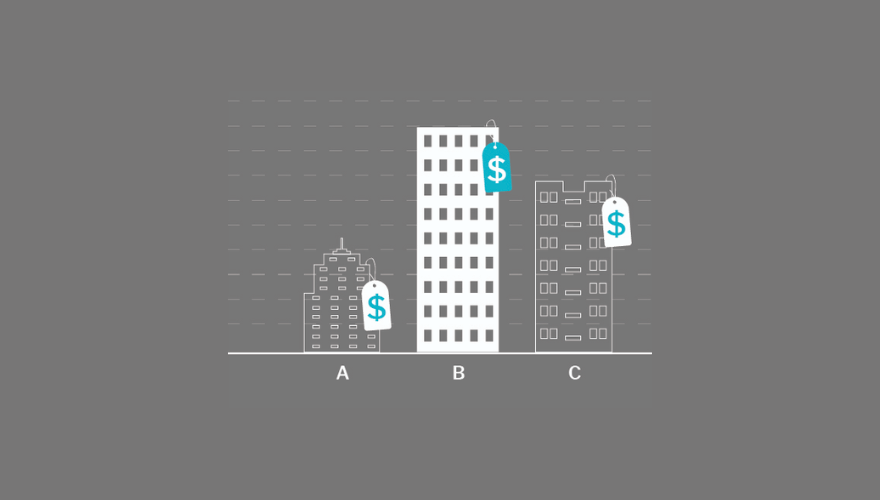Whether you’re a B2B or B2C company, finding the right media agency can be a daunting task. The sheer number of agencies to choose from, all claiming to be “strategic, forward-thinking partners” is overwhelming, to say the least.
It’s also a really important decision. The right choice can provide you with speed and expertise that is often difficult to hire. The wrong choice can lead you to discredit viable channels, and a replacement process that drains some of the most valuable commodities for a ScaleUp – time and momentum.
Here, we outline key questions to ask yourself before you begin the search and some principles to keep in mind when vetting and onboarding agencies.
Ask Yourself
What are your goals?
Be as specific as possible. Do you need a certain number of new customers or a concrete growth in ARR or new business revenue? Do you need upper funnel leads, more brand awareness, and/or increased revenue out of existing customers? The more specific you are, the better you’ll be able to find the right partner.
What is your budget and is it flexible?
Understand how much you will have to spend, both on actual media dollars and agency costs. Not all agencies are created equal. Some are great at spending small budgets efficiently; others are better suited for scaling large budgets quickly. Think through your performance goals and what you need out of both your agency and your budget. A key consideration is how your budget will change based on media performance.
- What is your pain threshold? For example, if a channel takes time to perform, how much time and money are you willing to invest to see results? If you’re bound to a set KPI and a channel or agency doesn’t deliver, are they on the chopping block?
- How flexible is your budget if you see success? If goals are met, do you have the media budget and agency bandwidth to scale a channel effectively?
Based on your goals, where do you need agency expertise?
Before you can begin your search, you’ll first need to identify what skills you already have in-house and what you need from a partner. If you’re a small team, you may seek a single media agency that can create an omnichannel strategy, provide overall guidance on budget allocations, and execute that plan. Alternatively, you may only need to find an expert within a specific channel.
Also think through if you need supplemental services beyond media like creative support, landing pages, ad ops, or analytics. Are you looking for the agency to be an embedded component of your team, or do you want them to take a channel completely off your hands and only give you updates? Both are fine, but some agencies will excel at one or the other.
What is your long-term plan?
Try thinking about the five-year roadmap. Is your agency a stopgap while you build an internal team? Are you simply renting expertise to get your internal team over a hump in efficiency or skill gap? Keep in mind that an in-house social marketing team will likely be much more expensive to your organization than a social agency retainer in the short term but may scale more effectively.
The Vetting Process
Meet the account team, not just the sales team
It’s important to understand if you are talking to an account team or a sales team. The sales team’s job is to sell you, so make sure you meet and assess the people who will actually work on your campaigns. You should meet your day-to-day account team and understand their seniority, experience, and familiarity with your industry and business model.
Assess the true value add and fit
Even working with a “full-service” agency, you might find that some of your work will be outsourced, be it ad ops, or whole media channels. Make sure to clarify what your agency has staff for in-house and if it plans to outsource any of the work.
Try to hone in on what an agency is truly an expert in. Having experience in a tactic or channel and being an SME in it are two different things. It’s also good to understand what additional services you may be able to use them for down the line, even if they are not a priority right now.
At this stage, also make sure the agency fits your brand. Bootstrapped startups probably won’t do as well working with large agency-holding companies as they would with a more niche boutique agency. You wouldn’t hire an employee who isn't a culture fit for your company and should follow the same rule for hiring an agency.
Talk to references
Always get references from the agency's clients, and ask important questions that go beyond “how were they?”:
- How does the agency handle underperforming campaigns?
- What is their communication style and cadence, and can they modify it to fit your needs?
- Are their insights insightful, and how will they report on performance?
Whenever possible, try to find your own references, either from your network or just by calling on clients listed on the agency website. References provided by the agency will likely be handpicked to sing their praises. If you’re an Insight portfolio company, post on our GO Network or reach out to your onsite representative for guidance and partner referrals.
Expect an audit
If an agency is taking over an existing channel, plan to give it read-only access to that platform for it to provide a readout of what you’re doing well and what it would change. It should help you identify ways to improve and your next steps. Some of our partner agencies will even create a sample creative or two to demonstrate their value. All of these things will show you its true expertise and demonstrate it has a plan to help you achieve your goals.
Negotiation and the Contract
Now that you’ve vetted agencies and chosen a favorite or two, it’s time to talk numbers.
- When quoted with a price, know that base fees and percent of media fees are both flexible and can operate on a sliding scale based on how much you spend. Nothing is a fixed cost, so don’t be afraid to negotiate. It’s always harder to negotiate this later.
- Read, read, read your contract. Agency SOWs often include boilerplate language that is both overly inclusive and vague. Make sure you understand what is included so that you’re not paying for services you don’t need or lacking ones that you do. If you’re engaging an agency for social media, what platforms does that include, specifically? What does it look like if you want to expand into new channels down the line?
- Make sure your contract stipulates that you will own your data. If an agency asks you to operate out of its ad accounts instead of yours, run. You should always own your own accounts and have full ownership and transparency of your campaign data. This helps you avoid expensive markups on your media spend and loss of historical data if you or your agency decides to end the partnership.
- What are the contract opt-out clauses and term lengths? 30-day opt-out? 90 days? Will the contract auto-renew after 6 months, 1 year? These terms should align with your long-term plans.
Picking an agency is as important a decision as hiring an employee. It’s incredibly consequential, and investing the time to find the right partners is crucial to hitting your marketing goals. At the end of the day, the right agency partner will instill confidence that it will treat your money with the same care as it would its own and help you achieve your goals. The wrong agency will cost you time and hurt your growth momentum. If you’re an Insight portfolio company and thinking about onboarding a new agency partner, reach out to your Onsite contacts for recommendations and help with the vetting process.










